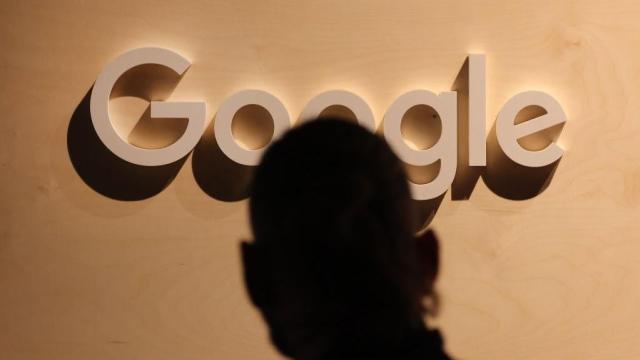In 1982, the Department of Justice wrapped up a 13-year antitrust case against IBM. The DOJ lost, but so did IBM. The tech landscape changed, and IBM was distracted and had to move slowly under the increased scrutiny. Microsoft and Apple swooped in and knocked IBM off its perch. 20 years later, the same thing happened to Microsoft. The DOJ launched an antitrust investigation, and ultimately Microsoft wasn’t broken up. But Apple, Google, and social media companies like Facebook left Microsoft in the dust. Now it seems like it’s Google’s turn.
The DOJ and eight state attorneys general launched a massive antitrust lawsuit against Google on Tuesday, accusing the search giant of operating a monopoly in the online ad business, and asking a court to break the company up.
Win or loose, Google is in trouble. AI tools like ChatGPT pose an existential threat to the company’s search business. Google.com is the most popular website on earth, but Google needs to use everything at its disposal to fend off competition right now — which is exactly what it needs to avoid doing with the DOJ breathing down its next.
If you’ll pardon the jargon, this kind of thing is what experts refer to as a “big problem.”
“When you’re under this sort of scrutiny and defending yourself from the Justice Department and eight very impactful states, it’s going to be much harder for you to operate and make acquisitions,” said Jason Kint, CEO of Digital Content Next, a trade association that represents roughly 80 publishers, including the New York Times, Wall Street Journal, and Gizmodo parent company G/O Media. “This lawsuit couldn’t come at a worse time for Google.”
Google did not respond to a request for comment.

Behind the scenes, things are pretty chaotic at Google right now. Facing a global economic downturn that’s been especially tough on the tech industry, the company laid off 12,000 workers last week, a full 6% of its workforce. The move shattered the image of abundance and stability Google has projected for the past decade. Meanwhile, reports say Google’s management is calling AI’s threat to Search a “code red” situation. It’s so bad that the Google called its founders Larry Page and Sergey Brin out of their professional slumber to help strategize for its fight against the artificially intelligent enemies at the gate. When Google hit the scene in the late ‘90s, it quickly made other search engines look like dinosaurs. AI driven content discovery could do the same to Google.
As if that’s not enough, Google is, ironically, dealing with some competition for once. For the first time in nearly a decade, Google and Meta’s control of the digital ad market dipped below 50% last year. Amazon and a million other companies from Kroger to Disney to Marriott are launching their own ad networks. (Which isn’t to say Google doesn’t still have a stranglehold on ads, which we’ll get to in a second.)
“We haven’t seen a platform shift in a long time, and Google is at a critical juncture,” said an digital advertising executive, who asked to withhold their name due to business ties with Google. “We’ve seen how seriously they’re taking the AI problem, and you’ve got competition from meaningful players like Apple, Amazon, and TikTok against a shifting privacy landscape. And now Google has to be apprehensive about running its business while it contends with this lawsuit. It’s super disruptive.”
It would be a lot of easier Google could move fast and break things (I know that was Facebook’s motto, not Google’s, be nice to me in the comments). But with the full force of the US government bearing down on it, the search giant can’t do that now. Tim Wu, who serves as special assistant to the president for technology and competition policy, once called this the “policemen at the elbow effect.” Google will need to conduct itself slowly and tentatively in order to avoid jeopardizing itself in its battle with the Justice Department.
“We’ve been down this road before,” the ad executive said. “IBM was going though an antitrust lawsuit when Microsoft was a small upstart, and then Microsoft had to pay it forward in the early 2000s when they had their own lawsuit.”
What’s especially ironic is the player that looks poised to dominate the AI space is, somehow, Microsoft. The maker of Windows and Bing is pouring billions of dollars into OpenAI, the company behind ChatGPT. Microsoft says it will spread its collaborations with OpenAI across its services in the very near future. An AI fuelled version of Bing, perhaps the biggest competitor to Google search in two decades, is slated for this spring.
“History tends to repeat itself,” the ad exec quipped.
